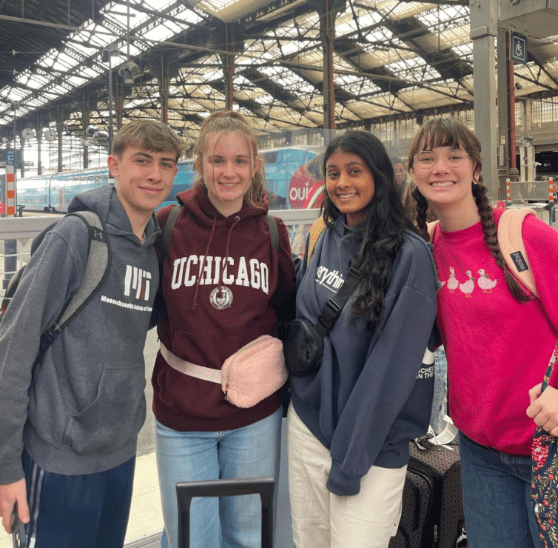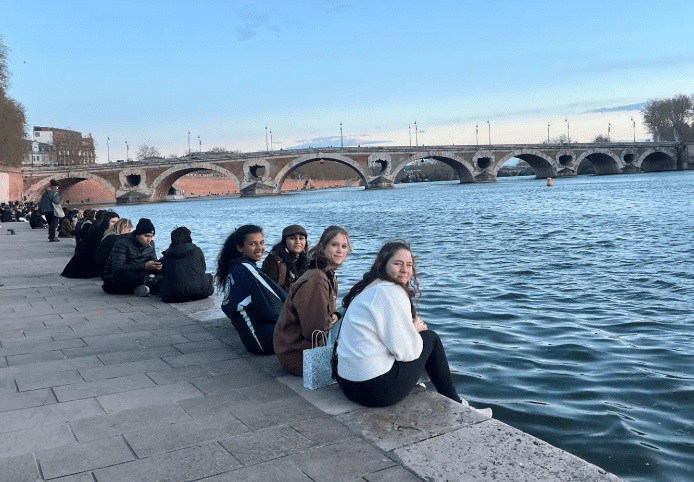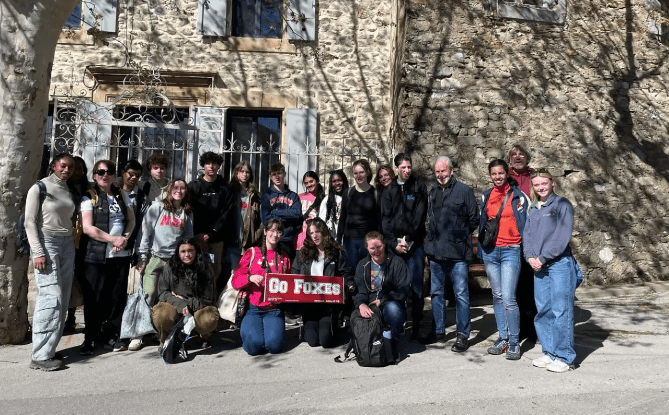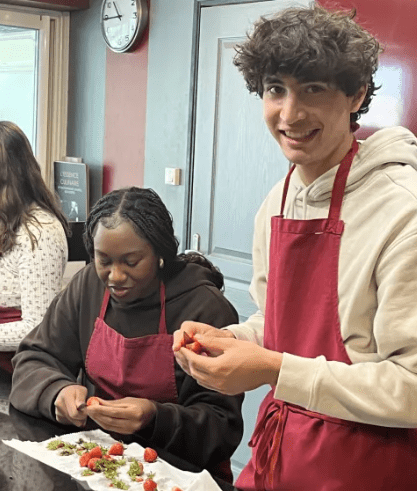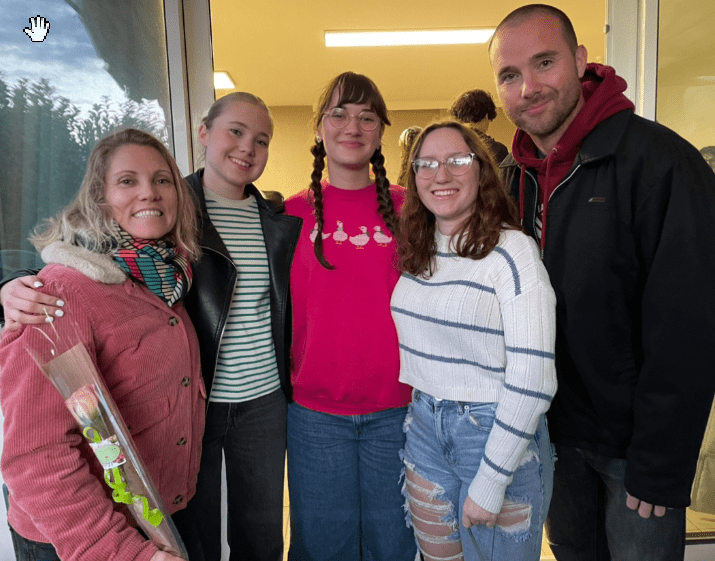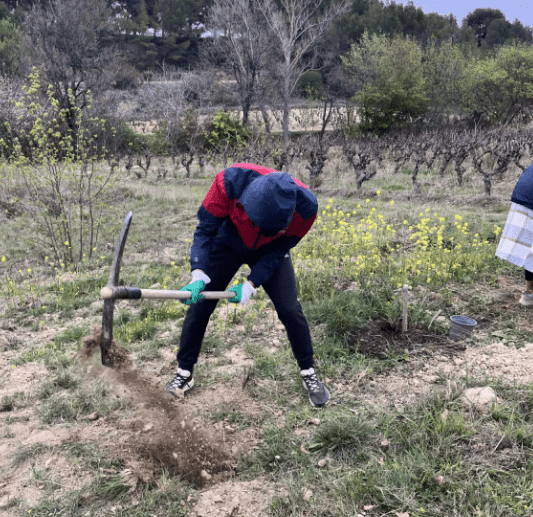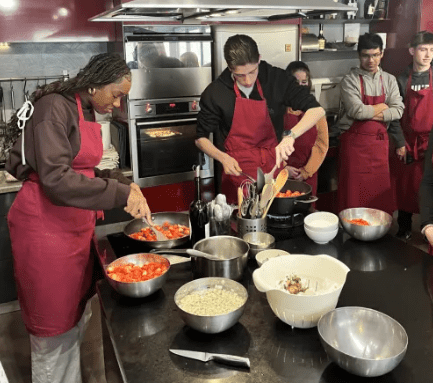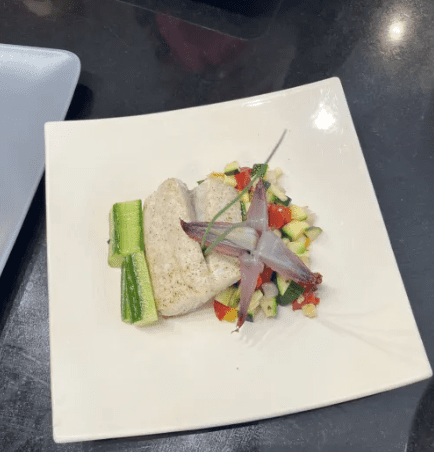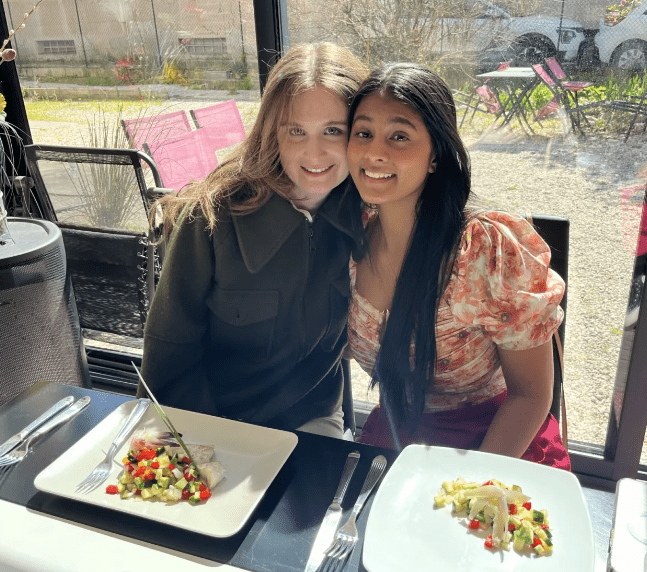Upper School Intensive Learning Spotlight: France
By Dinah Megibow-Taylor ’24, Marketing and Communications Department Intern
Eighteen Upper School students experienced eight days of French culture and service work complete with a four-day homestay immersion, venturing from Paris to the southwest of France During their Intensive Learning trip in late March.
The group began in Paris, where they got their fill of Parisian architecture, art, and cuisine. They spent time in both the Louvre and the Musée d’Orsay, visited the Arc de Triomphe, the Cimetière du Père Lachaise, the Notre-Dame, and they ascended the Eiffel Tower – despite blustery weather – to soak in spectacular views of the city.
The MFS contingent then traveled by high-speed rail to the southwestern city of Carcassonne where students met their host families and partook in a potluck dinner to celebrate their arrival. For the next four days, students engaged in historical restoration work in the village of Minervois-Pouzols each morning while venturing to different attractions in the afternoons, including a cave with the world’s largest deposit of Aragonite and the Mediterranean beach town of Gruissan. Each night, students would return to their host families where they would experience French immersion and participate in cultural exchange.
To end their trip, the group traveled to Toulouse for their final day, where they participated in a traditional cooking class and spent the afternoon exploring the city’s shops and streets.
Students ended their trip with a period of Meeting for Worship-style group reflection on the bank of the Canal du Midi, the sun setting behind them as their time in France came to a close.
This is one in a series of 2024 Intensive Learning Spotlights. For one week each March, regular classes are suspended for “Intensive Learning,” when Middle and Upper School students and teachers engage in an in-depth study of a specific subject, often involving off-campus research. This long-standing MFS tradition – which dates back to the mid 1970s – allows teachers and students to break out of the structure of formal class periods and traditional study for a time of experiential learning. Both students and teachers are encouraged to view themselves as life-long learners and students of the world around them.


